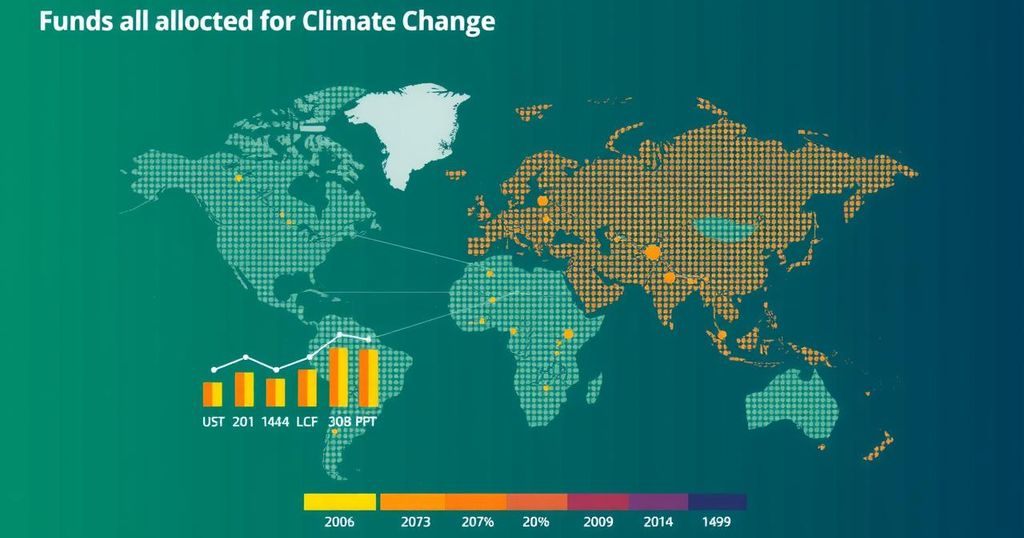Business
Climate change
economics
AFRICAN NATIONAL CONGRESS, ANDRE DE RUYTER, ASIA, BRITAIN, CFU, CHINA, CLIMATE CHANGE, DONALD TRUMP, ECONOMY, ENVIRONMENTAL POLICY, ESKOM, EUROPE, GERMANY, GREENHOUSE GAS EMISSIONS, GRETA THUNBERG, KEI, MEXICO, NORTH AMERICA, PARIS AGREEMENT, UK, UN, US
Fatima Khan
0 Comments
Examining the Allocation of Britain’s Climate Finance Commitments
Britain has committed significant funds to climate finance, including £7.7 billion, as part of global cooperative efforts to assist poorer nations. However, concerns arise regarding corruption, the political landscape, and effective allocation of resources, as demonstrated by the example of South Africa’s Eskom, which pledges emissions reductions in exchange for climate funding. The challenges of ensuring transparency and accountability in the distribution of these funds highlight ongoing tensions in addressing the global climate crisis effectively.
In preparation for the COP29 climate summit, South Africa’s energy company Eskom announced a plan to reduce emissions at its coal-fired plants in exchange for £2 billion in climate financing. This pledge is of particular significance given the severe air quality issues faced by those living near Eskom’s facilities, with asthma rates tragically elevated compared to global averages. Former Eskom CEO André de Ruyter’s comments on the company’s extensive corruption issues remind us of the challenges these funds may face.
Despite South Africa being a leading recipient of climate finance, recent developments have revealed its ruling party, the African National Congress, may gain financially from the anticipated £240 billion annual funding aimed at assisting poorer nations with climate change adaptation by 2035. However, criticism of these commitments highlights concerns such as inflation adjustments and overall transparency regarding where funds will be allocated.
The UK has pledged £7.7 billion, following the US’s commitment of £8.4 billion, and is determined to lead in climate financing efforts moving forward. Officials argue that such agreements are necessary for fostering clean energy growth both domestically and globally. The UK has made strides in reducing its carbon emissions, achieving halving them since 1971. Though the nation ranks as the sixth largest economy globally, it faces competition from emerging economies, including India and Brazil, which are also major recipients of climate finance.
Regions such as East Asia, sub-Saharan Africa, and others are witnessing notable increases in climate fund allocations, with major global polluters like China and India standing to gain substantial financial support. Transparency International has raised alarms about corruption potentially siphoning off valuable climate finance, particularly through partnerships aimed at transitioning from coal to green energy, such as Just Energy Transition Partnerships (JETPs). Their reports suggest that countries receiving significant financing often report poor scores on corruption indices, leading to concerns that funds may not reach those in need.
As nations continue to lobby for a share in climate financing ahead of future summits, the political landscape regarding climate change appears increasingly fragmented, raising questions about the feasibility of collective action against this global crisis. The urgent need to address climate change looms large, yet the growing political divide may complicate efforts to mobilize necessary resources.
The article addresses the complexities surrounding international climate finance, particularly in the context of COP29 and commitments made by nations like the UK to support poorer countries in combating climate change. It highlights key recipients of climate funds, addresses the issue of corruption, and examines the disconnect between climate pledges and actual implementation. It also denotes the urgent need for transparency and accountability in climate financing, as well as the political implications surrounding such global initiatives.
In conclusion, while nation-states have pledged substantial funds to combat climate change, pressing concerns regarding corruption and political divergence threaten the effective and equitable distribution of these resources. The ongoing lobbying efforts in anticipation of future climate summits underscore the fragility of global alliances against climate deterioration. Consequently, ensuring transparent, accountable framework for climate financing remains critical to achieving genuine progress toward a sustainable and equitable future.
Original Source: www.telegraph.co.uk




Post Comment